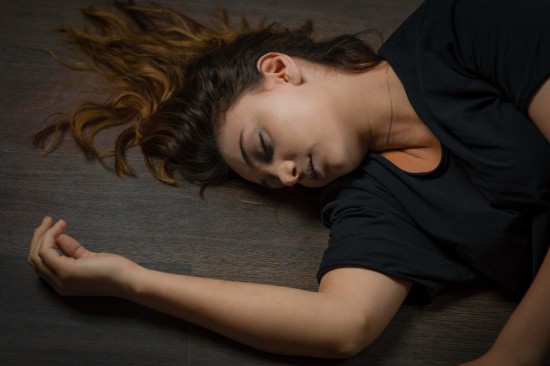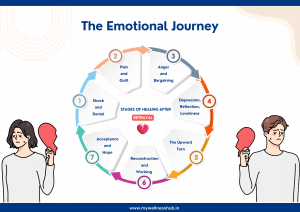What Mental Issues Do Students Face and Why?
By Prapoorna M
Last Updated: November 26, 2021
As our body sometimes has physical health issues, our mind also have some mental health issues. It is with your mind you think to act according to the situations on many things like how and what to do. But when this thinking gets affected either by some emotions or some physiological symptoms, it results in a lot of mental suffering. Not everyone will be aware of this. But we are sure to notice some differences. Whatever the situation is, we hesitate to discuss these mental problems with anyone. People often dislike sharing that they are sick and low. But friends are there to help you to be well and they look out for the best interests in you. It is better to share at least with some close friends until you seek some professional help to get you better.
Also read: Easy and Motivational Tips for Test Preparation | How to prepare well for a test?
Problems Commonly found in students
Let’s have a look at the commonly found problems in students. Though there could be several others, the roots of those problems lie in the following.
Depression
Depression is a common but serious mental illness that can leave the person desolate and in a state of helplessness, creating a sense of darkened future. It tends to run in families. As science puts it, the levels of two neurotransmitters named Norepinephrine and Serotonin are present in lower proportions in the brains of depressed people than in normal people. People having depression often possess negative conceptions of their own traits, abilities and behaviour. Depressed people begin to torture themselves with self-criticism and feelings of worthlessness.

Encountering sexual abuse could also trigger depression in teenage students. The reasons for depression in both school-going and college-going students could be many. Students drop out of schools and colleges because of such problems. If left untreated, this could lead to suicides. The students who seem to eat too less or too much or who sleep too less or too much and whose tend to cry easily with overwhelming sadness, feeling powerless always and who speak and think in a pessimistic way and who are unable to pay attention and complete the given task, can be identified as being depressed. Having these symptoms doesn’t necessarily mean you are depressed, but if a person is depressed, such symptoms are likely to be observed.
Also read: Temperaments in Underachievers
Anxiety
Low to average levels of anxiety is mostly felt by everyone. One becomes anxious while going to do something really important. Anxiety is felt in different ways for different reasons. When anxiety is experienced in a specific way, it is identified as a specific anxiety Condition.
The most common types of Anxiety disorders are:
- Generalized Anxiety Disorder
- Panic Disorder
- Social Anxiety
- Specific phobias
- Obsessive Compulsive Disorder
- Post Traumatic Stress Disorder
Students are most likely to experience anxiety during their exams. While a moderate amount of anxiety keeps them revising the syllabus before exams and study hard, higher levels of anxiousness spoils the focus. The symptoms of anxiety include stress, apprehension, fearfulness, restlessness, muscle pain, and tension, stomach upset etc. that can be identified by the ones around.
Read more: Things one should know about a Student’s Mental health
Suicidal Tendencies
Unfortunately, Suicide is the most common and hence most discussed problem in the students. Globally, approximately one million people die from suicide each year, of which students are the most. Feelings of hopelessness, guilt, despair and severe depression are the common problems that lead to suicides. From failing in exams to relationships, any unexpected result could affect them severely that could finally lead to suicidal ideation. Suicidal tendencies in students can be identified by co-students, friends, teachers or family members. Sometimes people who are strongly determined tend to hide their feelings of depression with a smile called as Smiling depression. Such people are more prone to commit suicides.

In such cases, the symptoms cannot be identified. But usually when students have such suicidal tendencies, they talk about the feeling of trapped and helplessness or overwhelming guilt. They are likely to have mood changes and display sudden behavioral changes.
Eating and Sleep disorders
Those who are emotionally imbalanced, tend to adopt eating or sleeping as coping mechanisms. Eating too low or more than normally necessary, and sleeping too low or overly sleepy for more hours are commonly observed in people with mental illness. If students tend to display such behaviors, the cause of their worry should be known. Speaking about the issue and taking measures to control this emotional eating is very necessary.
Eating disorders such as Anorexia nervosa, bulimia nervosa, and binge eating disorder or emotional eating and sleeping disorders like insomnia or hypersomnia are found in people who are internally depressed, stressed or anxious. It is identified that people who have eating disorders are more likely to commit suicides.
Addiction
Now-a-days students are prone to addiction rather than all other kinds. As the physical activities in schools and colleges got reduced and the maintenance of relationships has been decreased, most of the today’s youth are getting hooked to their smart phones and are getting tech-addicted. Playing online games and getting obsessed with taking selfies and maintaining active social life have been great causes of tech-addiction.
Along with this, students get influenced by their friends and as a method to cope with the peer pressure, develop certain habits which later on turn into addictions. They include smoking, consumption of alcohol and drug abuse. One can observe a sudden need for money, slurred speech, and bloodshot eyes, having fear, anxiety and paranoia in such students. Sudden change in habits and friends and the deterioration of physical health are the major symptoms that can be found. Undertaking counseling can help them get rid of those habits.
What to do?
While the reasons for their mental illnesses could be many, the behaviors of students should be thoroughly observed by their parents and teachers so as not to let them fall prey to the bad practices. If at all, any such symptoms are observed, it is better to talk to them. It is always better to seek a professional help from an expert psychologist. In case, the symptoms are diagnosed to be severe, they will be referred to a psychiatrist. Log on to book an appointment, with one of our expert psychologists to take care of your mental health.
Book your Free Consultation Today
Parent/Caregiver Info:
Client’s Details:
* Error Message









